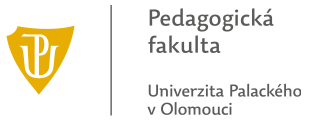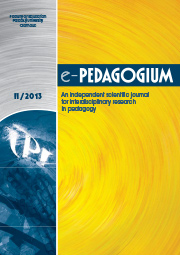e-Pedagogium 2024, 24(1):7-20 | DOI: 10.5507/epd.2024.004
Aspekty využití proktoringových systémů při realizaci hromadných on-line testů
- Kontakt:
- Katedra technické a informační výchovy, Pedagogická fakulta, Univerzita Palackého v Olomouci, Žižkovo nám. 5, 771 40 Olomouc
Jedním z problémů, se kterými se vzdělávací instituce setkávají je integrita on-line hodnocení, tedy nutnost provádět on-line zkoušení a testování pomocí vhodných nástrojů a metod. I když je efektivita a pružnost nasazení jednou z nesporných výhod on-line zkoušení a testování, je potřebné zdůraznit, že on-line testování s využitím on-line proktoringových systémů, vzbuzuje u účastníků jisté obavy, které mohou mít i negativní dopad na jejich výsledky. Z tohoto důvodu bylo, s využitím metod pedagogického výzkumu a s využitím příslušných statistických metod, realizováno výzkumné šetření mezi účastníky on-line přijímacích testů, s cílem zjistit jejich připravenost, ale i konkrétní obavy a očekávání, které on-line proktoring z jejich pohledu přináší. Průběh a výsledky realizovaného výzkumného šetření je předmětem sdělení předložené studie.
Klíčová slova: on-line testování, on-line proktoring, technologické aspekty, psychologické aspekty.
Aspects of the use of proctoring systems in the implementation of mass on-line tests
One of the challenges faced by educational institutions is the integrity of online assessment, i. e. the need to conduct online testing using appropriate tools and methods. Although efficiency and flexibility of deployment is one of the undisputed advantages of online testing, it should be emphasized that online testing using online proctoring systems raises some concerns for participants, which may also have a negative impact on their results. For this reason, using pedagogical research methods and appropriate statistical methods, a research survey was conducted among participants in online placement testing to determine their readiness, but also the specific concerns and expectations that online proctoring brings from their perspective. Both the realization and results of the research are presented in this paper.
Keywords: on-line testing, on-line proctoring, technological aspects, psychological aspects.
Vloženo: 14. březen 2023; Revidováno: 27. září 2023; Přijato: 3. březen 2024; Zveřejněno: 17. říjen 2024 Zobrazit citaci
Reference
- Alessio, H. M., Malay, N., Maurer, K., Bailer, A. J., & Rubin, B. (2017). Examining the effect of proctoring on online test scores. Online Learning, 21(1), 146-161. DOI: 10.24059/olj.v21i1.885
 Přejít k původnímu zdroji...
Přejít k původnímu zdroji... - Arnò, S., Galassi, A., Tommasi, M., Saggino, A., & Vittorini, P. (2021). State-of-the-art of commercial proctoring systems and their use in academic online exams. International Journal of Distance Education Technologies, 19(2), 41-60. DOI: 10.4018/IJDET.20210 401.oa3
 Přejít k původnímu zdroji...
Přejít k původnímu zdroji... - Arnold, I. J. M. (2016). Cheating at online formative tests: Does it pay off? The Internet and Higher Education, 29, 98-106. DOI: 10.1016/j.iheduc.2016.02.001.
 Přejít k původnímu zdroji...
Přejít k původnímu zdroji... - Berger, R. (2018). Here's What's Wrong With Bloom's Taxonomy: A Deeper Learning Perspective. Education Week. [on-line]. Dostupné na: https://www.edweek.org/teaching-learning/opinion-heres-whats-wrong-with-blooms-taxonomy-a-deeper-learning-perspective/2018/03.
- Brehm, S. S., & Brehm, J. W. (2013). Psychological reactance: A theory of freedom and control. New York: Academic Press.
- Coghlan, S., Miller, T., & Paterson, J. (2021). Good proctor or "big brother"? Ethics of online exam supervision technologies. Philosophy & Technology, 34, 1581-1606. DOI: 10.1007/s1334 7-021-00476-1
 Přejít k původnímu zdroji...
Přejít k původnímu zdroji... - Dendir, S., & Maxwell, R. S. (2020). Cheating in online courses: Evidence from online proctoring. Computers in Human Behavior Reports, 2, 1-10. DOI: 10.1016/j.chbr.2020.100033
 Přejít k původnímu zdroji...
Přejít k původnímu zdroji... - Drew, H. (2021). Mass school closures in the wake of the coronavirus are driving a new wave of student surveillance. Washington Post, 1. 4. 2020. [on-line]. Dostupné na: https://www.washingtonpost.com/technology/2020/04/01/online-proctoring-college-exams-coronavirus/
- Godinho, V. (2020). All UAE schools, universities to extend e-learning programmes until June. GulfBusiness, 30. 3. 2020. [on-line]. Dostupné na: https://gulfbusiness.com/uae-schools-universities-extend-e-learning-programmes-june/
- González-González, C. S., Infante-Moro, A., & Infante-Moro, J. C. (2020). Implementation of E-proctoring in online teaching: A study about motivational factors. Sustainability, 12(8), 3488. DOI: 10.3390/su12083488.
 Přejít k původnímu zdroji...
Přejít k původnímu zdroji... - Gruber, D. (2010). Rychločtení Rychlostudium Info management. Management Press s. r. o.
- Harmon, O. R., Lambrinos, J., & Buffolino, J. (2010). Assessment design and cheating risk in online instruction. Online Journal of Distance Learning Administration, 13(3).
- Hylton, K., Levy, Y., & Dringus, L. P. (2016). Utilizing webcam-based proctoring to deter misconduct in online exams. Computers in Education, 92-93, 53-63. DOI: 10.1016/j.compedu.2015.10.002.
 Přejít k původnímu zdroji...
Přejít k původnímu zdroji... - Kamalov, F. et al. (2021). Machine Learning Based Approach to Exam Cheating Detection. PLoS ONE. 16(8).
 Přejít k původnímu zdroji...
Přejít k původnímu zdroji... - Lee, K., Fanguy, M., Bligh, B., & Lu, S. (2021). Adoption of online teaching during the Covid-19 Pandemic: A systematic analysis of changes in university teaching activity. Educational Review. DOI: 10.1080/00131911.2021.1978401
 Přejít k původnímu zdroji...
Přejít k původnímu zdroji... - Majeed, A., Baadel, S., Haq, A. U. (2016). Global Triumph or Exploitation of Security and Privacy Concerns in E-Learning Systems. In Jahankhani, H., et al. Global Security, Safety and Sustainability - The Security Challenges of the Connected World. ICGS3 2017. Communications in Computer and Information Science, vol 630. Springer. https://doi.org/10.1007/978-3-319-51064-4_28.
 Přejít k původnímu zdroji...
Přejít k původnímu zdroji... - Milone, A. S., Cortese, A. M., Balestrieri, R. L., & Pittenger, A. L. (2017). The impact of proctored online exams on the educational experience. Currents in Pharmacy Teaching and Learning, 9(1), 108-114. DOI: 10.1016/j.cptl.2016.08.037.
 Přejít k původnímu zdroji...
Přejít k původnímu zdroji... - Murphy, K. R., & Davidshofer, C. O. (2004). Psychological testing : principles and applications. (Sixth international edition.). Pearson/Prentice Hall.
- Nigam, A. et al. (2021). A Systematic Review on AI-based Proctoring Systems: Past, Present and Future. Education and Information Technologies. 26(5), 6421-6445. DOI: 10.1007/s10639-021-10597x
 Přejít k původnímu zdroji...
Přejít k původnímu zdroji... - Owens, H. S. (2015). Cheating within online assessments: A comparison of cheating behaviors in proctored and unproctored environments. Mississippi State University. Theses and Dissertations. 1049. https://scholarsjunction.msstate.edu/td/1049.
- Palmer, D. (2007). What is the best way to motivate students in science? Teaching Science, 53(1), 38-42.
- Peled, Y., Eshet, Y., Barczyk, C., & Grinautski, K. (2019). Predictors of Academic Dishonesty among undergraduate students in online and face-to-face courses. Computers & Education, 131, 49-59. DOI: 10.1016/j.compe du.2018.05.012
 Přejít k původnímu zdroji...
Přejít k původnímu zdroji... - ProctorU. (2020). ProctorU-The leading proctoring solution for online exams. https://www.proct oru. com/
- Rapanta, C., Botturi, L., Goodyear, P., Guàrdia, L., & Koole, M. (2020). Online University Teaching During and After the Covid-19 Crisis: Refocusing Teacher Presence and Learning Activity. Postdigital Science and Education, 2(3), 923-945. DOI: 10.1007/s4243 8-020-00155-y
 Přejít k původnímu zdroji...
Přejít k původnímu zdroji... - Rasinski, T. V. (2000). Commentary: Speed Does Matter in Reading. The Reading Teacher, 54(2), 146-151.
- Safe Exam Browser. (2020). About, overview. Safe Exam Browser. https://safeexambr owser.org/about_overview_en.html
- Sam, A. H. et al. (2020). High-stakes, Remote-access, Open-book Examinations. Medical Education, 54(8), 767-768. DOI: 10.1111/medu.14247.
 Přejít k původnímu zdroji...
Přejít k původnímu zdroji... - Štuka, Č., & Vejražka, M. (2021). Testování a hodnocení studentů na VŠ. Univerzita Karlova, Karolinum.
- Young, J. R. (2013). Online classes see cheating go high tech. The Education Digest, 78, 4-8.
- Williams, K., & Williams, C. (2011). Motivation, five key ingredients for improving student. Research in Higher Education Journal, 12, 104-122.
Tento článek je publikován v režimu tzv. otevřeného přístupu k vědeckým informacím (Open Access), který je distribuován pod licencí Creative Commons Attribution-NonCommercial-ShareAlike 4.0 International License (CC BY-NC-SA 4.0), která umožňuje nekomerční distribuci, reprodukci a změny, pokud je původní dílo řádně ocitováno. Není povolena distribuce, reprodukce nebo změna, která není v souladu s podmínkami této licence.






